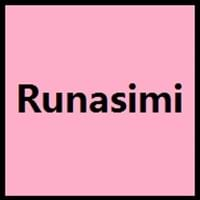Quechua vs Xhosa
- One of the most widely spoken indigenous language in the America is Quechua.
- Quechua language has borrowed many words from Spanish.
- Xhosa has 15 click sounds, borrowed from the khoi-khoi and san languages of the South Africa.
- The same sequence of consonants and vowels can have different meaning when said with different tones, so Xhosa is tonal.
Quechua and Xhosa Language History
Comparison of Quechua vs Xhosa language history gives us differences between origin of Quechua and Xhosa language. History of Quechua language states that this language originated in 16th Century whereas history of Xhosa language states that this language originated in 16th Century. Family of the language also forms a part of history of that language. More on language families of these languages can be found out on Quechua and Xhosa Language History.
Quechua and Xhosa Greetings
People around the world use different languages to interact with each other. Even if we cannot communicate fluently in any language, it will always be beneficial to know about some of the common greetings or phrases from that language. This is where Quechua and Xhosa greetings helps you to understand basic phrases in Quechua and Xhosa language. Quechua word for "Hello" is Rimaykullayki or Xhosa word for "Thank You" is Ndiyabulela. Find more of such common Quechua Greetings and Xhosa Greetings. These greetings will help you to be more confident when conversing with natives that speak these languages.
Quechua vs Xhosa Difficulty
The Quechua vs Xhosa difficulty level basically depends on the number of Quechua Alphabets and Xhosa Alphabets. Also the number of vowels and consonants in the language plays an important role in deciding the difficulty level of that language. The important points to be considered when we compare Quechua and Xhosa are the origin, speaking countries, language family, different greetings, speaking population of these languages. Want to know in Quechua and Xhosa, which language is harder to learn? Time required to learn Quechua is 44 weeks while to learn Xhosa time required is 44 weeks.





